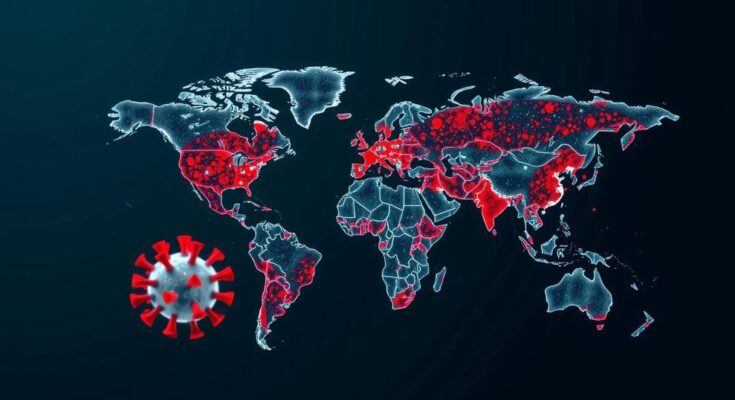The global healthcare system remains vulnerable, with 4.5 billion people lacking essential healthcare access. Recent outbreaks of mpox and cholera have raised alarms, indicating a need for heightened surveillance and preparedness. Experts warn that lessons from COVID-19 have not been fully integrated into current health policies, and climate change poses additional risks. Collaborative efforts and comprehensive strategies are essential for enhancing global health resilience.
As the world grapples with the ramifications of COVID-19, public health experts are expressing concerns about humanity’s preparedness for another potential pandemic, particularly in light of the emergence of diseases such as mpox and ongoing challenges posed by cholera outbreaks. With approximately 4.5 billion people lacking adequate access to essential healthcare services, the global health infrastructure remains under significant strain. The World Health Organization (WHO) has classified mpox as a public health emergency, with over 100,000 confirmed cases and 200 deaths, while cholera has nearly impacted 15,000 individuals in Sudan alone. Furthermore, the rise of new COVID-19 variants across 27 countries underscores the urgency of heightened surveillance and effective health measures. At the recent World Economic Forum, alarming statistics revealed that antimicrobial resistance (AMR) is now the leading global cause of death, with projections indicating 10 million fatalities by 2050. A report titled “Quantifying the Impact of Climate Change on Human Health” predicts that climate change could precipitate an additional 14.5 million deaths and $12.5 trillion in economic losses by 2050, further exacerbating an already strained healthcare system. The economic burden due to these stresses could escalate to $1.1 trillion. In a dialogue with Dr. Ahmed Ogwell, a prominent leader in global health strategy, the current state of world health was assessed. Dr. Ogwell characterized the risk level as moderate, but emphasized the need for vigilance amid various disease outbreaks, including mpox, dengue fever, and continued effects of COVID-19. He lamented that vital health systems established during the pandemic have been dismantled, thus compromising preparedness for future outbreaks. Although notable advancements were achieved during the COVID crisis, such as expedited vaccine development, similar urgency appears to be lacking in response to current threats like mpox and dengue.
The ongoing global health crisis reflects deep-seated vulnerabilities within the healthcare system, particularly for approximately 4.5 billion individuals who do not have sufficient access to essential healthcare services. This signifies a critical gap in global health readiness, particularly as nations face the dual challenges of emerging infections and the lingering effects of COVID-19. The emergence of mpox and the cholera outbreak in Sudan further exemplify emerging public health threats, stressing the need for enhanced global cooperation and forward-thinking strategies. Additionally, factors such as climate change and geopolitical tensions exacerbate the risks posed by infectious diseases, calling for a comprehensive and coordinated approach to public health.
In summary, while the world faces moderate health risks from emerging diseases, the potential for another pandemic remains contingent upon the global community’s readiness and response strategies. The lessons learned from COVID-19, particularly regarding preparedness and the maintenance of robust health infrastructures, have yet to be fully integrated into current practices. Increasing collaboration, investing in vital health services, and addressing the challenges posed by climate change are essential steps in fortifying global health against future outbreaks. The insights shared by Dr. Ogwell serve as a clarion call for urgency and solidarity in addressing these pressing health concerns.
Original Source: www.aljazeera.com




